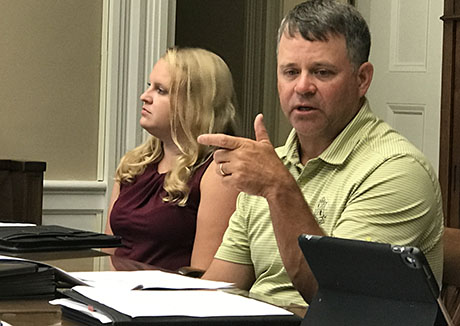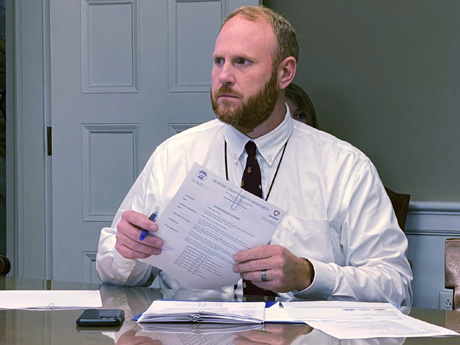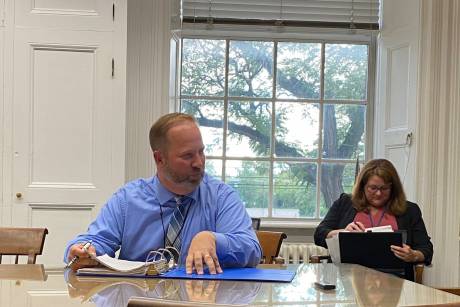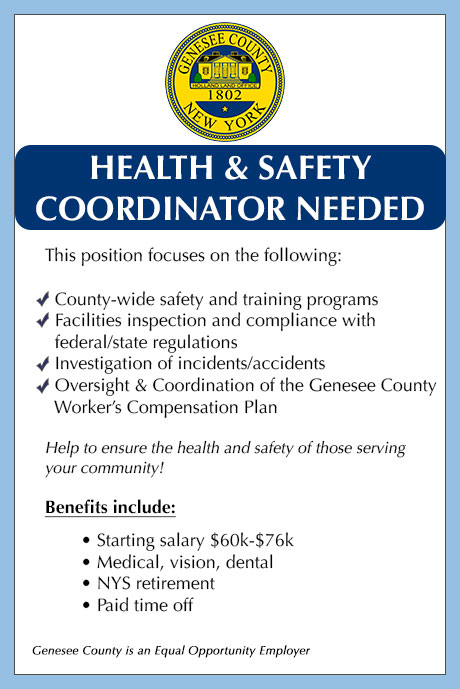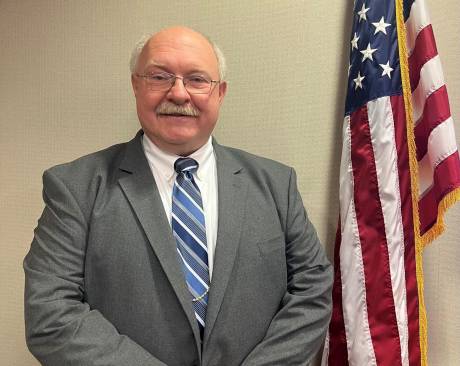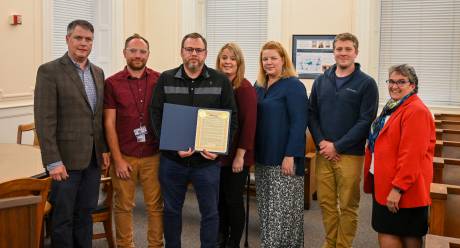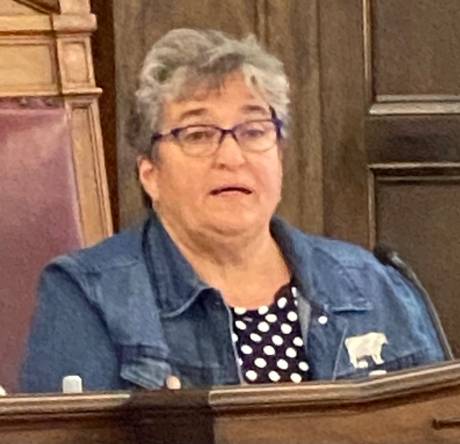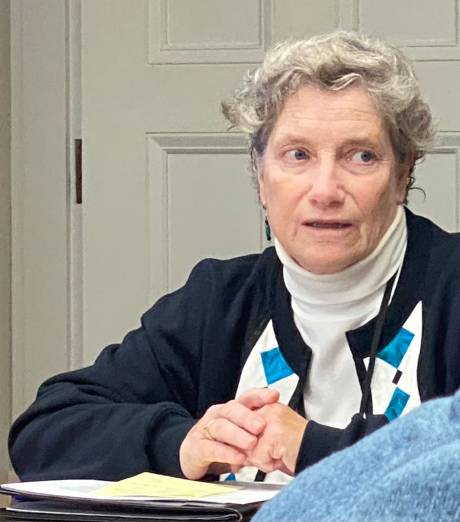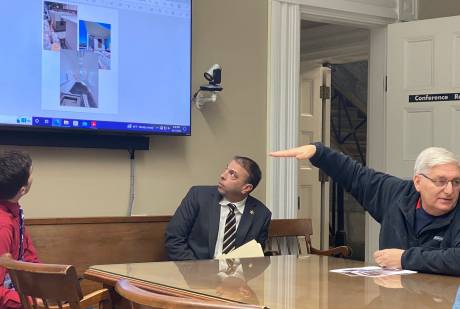Governor Kathy Hochul today announced a State of Emergency was issued Thursday morning for 11 counties as a winter storm is forecast to impact portions of upstate New York with intense lake effect snow through Sunday. The most significant snowfall is expected Thursday and Friday with accumulations of up to four feet of snow possible in the Buffalo area and up to two feet or more of snow possible in the Watertown area, with snowfall rates of three or more inches per hour. Hazardous travel conditions and local power outages as a result of the storm are likely due to the combination of snow and wind in the forecast. Lightning and thunder may also occur in the heavier, more intense bands. Governor Hochul urged New Yorkers to stay alert and avoid unnecessary travel Thursday evening through Friday, particularly in the Buffalo and Watertown areas.
The State of Emergency applies to the following counties, as well as contiguous counties: Cattaraugus, Chautauqua, Erie, Genesee, Jefferson, Lewis, Niagara, Oneida, Oswego, St. Lawrence, and Wyoming.
"We all have to do our part to make sure that everyone stays safe during this winter storm — that's why I have declared a State of Emergency for impacted counties, which will free up resources and boost our readiness," Governor Hochul said. "My administration has been preparing around the clock for this potentially life-threatening weather event, bringing in additional safety personnel and equipment, closing down the New York State Thruway, and activating Emergency Operation Centers. I urge all New Yorkers to stay prepared and vigilant over the next few days, making sure to look after vulnerable loved ones and neighbors."
Lake Effect Snow Warning and Winter Storm Watches are in effect through Sunday evening for several counties in the Western New York, Finger Lakes, Central New York and North Country regions. As of Thursday, the National Weather Service forecast anticipates several feet of snow for multiple locations over the duration of this storm.
For a complete listing of weather watches and warnings in your area, visit your area's National Weather Service website.
New York State Division of Homeland Security and Emergency Services Commissioner Jackie Bray said, "I can't stress enough the need for anyone in the path of this dangerous snowstorm to take action to prepare for several days of heavy snow, wind, dangerous travel conditions and the potential for power outages. New Yorkers are familiar with this kind of weather, but it's our first major snowstorm of the season, so let's please be careful, do your shopping and other errands now before the heavy snow starts falling, if you can, and touch base with friends and neighbors to make sure they are ready for the storm, too."
Agency Preparations:
Division of Homeland Security and Emergency Services
The New York State Division of Homeland Security and Emergency Services is closely monitoring weather and travel conditions, coordinating State agency response operations, and will be communicating with local governments throughout the event.
The State Office of Emergency Management's Emergency Operations Center is activating Thursday and the State's stockpiles are prepared to deploy assets to localities to support any storm-related needs.
The State Office of Fire Prevention and Control has assets such as emergency response vehicles, UTVs ready to deploy for mutual aid requests, as needed.
Department of Transportation (DOT)
The State Department of Transportation is responding with 3,287 supervisors and operators. Staff can be configured into any type of response crew that is required, including snow and ice operations, drainage, chipper, load and haul, and cut and toss. Additionally, 75 Incident Command System (ICS) personnel are available to support the upcoming event.
To support lake effect snow response in critical areas, a total of 112 staff from other regions, including 92 plow truck operators/supervisors, 11 equipment operator instructors, six mechanics, one operations manager, 1 ICS support staff, one safety representative, and one ICS support staff member were deployed to impacted regions. Additionally, 15 plow trucks, 6 medium duty trucks with plow, and 1 bulldozer were also deployed. They are distributed as follows:
Western NY/Buffalo - Personnel Deployments (87):
· 70 operators
· 7 supervisors
· 4 equipment operator instructors
· 4 mechanics
· 1 operations manager
· 1 ICS support staff
Equipment Deployments (22):
· 15 large plow trucks
· 6 medium duty plow trucks
· 1 bulldozer
All out of region resources will be in place by Wednesday afternoon or evening. The need for additional resources and equipment will continue to be re-evaluated as conditions warrant throughout the event.
All residency locations will remain staffed for 24/7 operations throughout the duration of the event and priority cleanup operations. All available snow and ice equipment is ready to deploy. Fleet mechanics in affected areas will be staffing all main residency locations 24/7 to perform repairs and keep trucks on the road. Statewide equipment numbers are as follows:
· 1522 large plow trucks
· 140 medium duty plows
· 50 tow plows
· 329 large loaders
· 38 snowblowers
DOT is implementing a full commercial vehicle ban at the following locations beginning Thursday at 4 P.M.:
· Interstate 190 - Route 62 to I-90
· Interstate 290 - full length
· Interstate 990 - full length
· Route 33 - full length
· Route 219 - Route 39 to I-90
· Route 400 - full length
· Buffalo Skyway Route 5 - full length
· I-81 - Exit 33 to Canadian border - trucks use right lane only
To find the latest traffic and travel conditions, call 511, visit www.511ny.org or download the free 511NY mobile app. The online system and mobile app include a state road map, indicating which roads are experiencing snow conditions and where conditions are normal.
Thruway Authority
Thruway Authority personnel are staffed around the clock and ready to respond to the lake effect storm with 657 operators and supervisors statewide. Thruway has shifted and deployed additional staff and equipment from its New York, Syracuse, and Albany Divisions to support snow and ice operations in the potentially hardest hit areas in Western New York. Deployed resources include operators and supervisors, mechanics, large plow trucks, and large snowblowers.
Additionally, Thruway Emergency Operations Centers will be staffed in Buffalo and headquarters for the duration of the storm to assist with managing snow and ice operations, traffic incident response, emergency management, and real-time traveler information.
Beginning at 4 p.m. Thursday, all commercial traffic will be banned on the New York State Thruway (I-90) from exit 46 (Rochester I-390) to the Pennsylvania border, and the Niagara Thruway from I-90 to exit 22 (Route 62). ALL commercial traffic heading eastbound on the Thruway must exit at exit 61 (Ripley - Shortman Rd).
Commercial traffic heading westbound on the Thruway towards Pennsylvania from points east, should use exit 46 (Rochester - I-390) for I-390 to I-86 West.
Thruway statewide equipment numbers and resources are listed below:
· 346 large and medium duty plow trucks
· 9 tow plows
· 66 loaders
· More than 132,000 tons of salt on hand
Variable Message Signs and social media are utilized to alert motorists of winter weather conditions on the Thruway.
The Thruway Authority encourages motorists to download its mobile app which is available for free on iPhone and Android devices. The app provides motorists direct access to real-time traffic information, live traffic cameras, and navigation assistance while on the go. Motorists can also sign up for TRANSalert e-mails which provide the latest traffic conditions along the Thruway. You can follow the Thruway Authority on Twitter: @ThruwayTraffic and @NYSThruway and on Facebook at NYS Thruway Authority.
Division of Military and Naval Affairs (DMNA)
DMNA will have 60 personnel on duty as of 6 p.m. tonight to assist with the state's response: soliders from the 2nd Squadron 101st Cavalry, which is based at Niagara Falls Air Reserve Station and the 105th Military Police Company at the Masten Avenue Armory, and Airmen from the 107th Attack Wing.
Department of Environmental Conservation (DEC)
DEC police officers, forest rangers, emergency management staff and regional staff are on alert and monitoring the developing situation and actively patrolling areas and infrastructure impacted by severe weather. DEC is coordinating resource deployment with agency partners and all available assets are positioned to assist with any emergency response.
DEC is advising backcountry users to be aware of and prepared for winter conditions. Winter hiking safety and preparedness are extremely important regardless of a hiker's physical ability or destination. Properly preparing for winter conditions is essential for a more enjoyable and safer experience. Additional information on winter hiking is available here.
DEC reminds those responsible for the large-scale removal and disposal of snow to follow best management practices to help reduce the potential for pollutants like salt, sand, oils, trash and other debris in snow from affecting water quality. More information is available here.
Office of Parks, Recreation and Historic Preservation
New York State Park Police and park personnel are on alert and closely monitoring weather conditions and impacts. Park visitors should check parks.ny.gov or call their local park office for the latest updates regarding park hours, openings, and closings.
Department of Public Service
New York's utilities have approximately 5,730 workers available statewide to engage in damage assessment, response, repair, and restoration efforts. This includes an additional 230 external FTEs secured by National Grid. NYSEG has increased its contractor support in the Western New York area in preparation for the lake effect snow. DPS staff will track utilities' work throughout the event and ensure utilities shift appropriate staffing to regions that experience the greatest impact.
State Police
The State Police is adding extra patrols to the areas that will be most impacted by the lake effect snow, and will also be staging additional specialty vehicles, including utility task vehicles and snowmobiles, in those regions. All four-wheel drive vehicles will be deployed, and troop emergency power and communications equipment has been tested.
Winter Safety Tips
Winter Travel
Some of the most important tips for safe driving include:
· When winter storms strike, do not drive unless necessary.
· Use caution on bridges as ice can form quicker than on roads.
· If you must travel, make sure your car is stocked with survival gear like blankets, a shovel, flashlight and extra batteries, extra warm clothing, set of tire chains, battery booster cables, quick energy foods, and brightly colored cloth to use as a distress flag.
· If you have a cell phone or other communications device, such as a two-way radio, available for your use, keep the battery charged and keep it with you whenever traveling. If you should become stranded, you will be able to call for help, advising rescuers of your location.
· The leading cause of death and injuries during winter storms is transportation accidents. Before getting behind the wheel, make sure that your vehicle is clear of ice and snow; good vision is key to good driving. Plan your stops and keep more distance between cars. Be extra alert and remember that snowdrifts can hide smaller children. Always match your speed to the road and weather conditions.
· It is important for motorists on all roads to note that snowplows travel at speeds up to 35 mph, which in many cases is lower than the posted speed limit, to ensure that salt being dispersed stays in the driving lanes and does not scatter off the roadways. Oftentimes on interstate highways, snowplows will operate side by side, as this is the most efficient and safe way to clear several lanes at one time.
· Motorists and pedestrians should also keep in mind that snowplow drivers have limited lines of sight, and the size and weight of snowplows can make it very difficult to maneuver and stop quickly. Snow blowing from behind the plow can severely reduce visibility or cause whiteout conditions. Motorists should not attempt to pass snowplows or follow too closely. The safest place for motorists to drive is well behind the snowplows where the roadway is clear and salted. Never attempt to pass a snowplow while its operating.
Heavy Exertion
Heavy exertion, such as shoveling snow, clearing debris or pushing a car, increase the risk of a heart attack.
To avoid problems:
· Stay warm, dress warm and SLOW DOWN when working outdoors.
· Take frequent rests to avoid over-exertion
· If you feel chest pain, shortness of breath, or pain in your jaw radiating down your arm, STOP and seek help immediately.
Power Outages
· Call your utility to determine area repair schedules
· Turn off or unplug lights and appliances to prevent a circuit overload when service is restored; leave one light on to indicate when power has been restored
· If heat goes out during a winter storm, keep warm by closing off rooms you do not need
Heating Safety
· Use only safe sources of alternative heat such as a fireplace, small well-vented wood or coal stove or portable space heaters
· Always follow manufacturer's instructions
· When using alternative heat sources such as a fireplace, woodstove, etc. always make sure you have proper ventilation
· Keep curtains, towels and potholders away from hot surfaces
· Have a fire extinguisher and smoke detectors and make sure they work
· If you use kerosene heaters to supplement your regular heating fuel, or as an emergency source of heat, follow these safety tips:
-Follow the manufacturers' instructions
-Use only the correct fuel for your unit
-Refuel outdoors ONLY and only when the unit is cool
-Keep the heater at least three feet away from furniture and other flammable objects
-When using the heater, use fire safeguards and ventilate properly
For more safety tips, visit https://dhses.ny.gov/safety.
